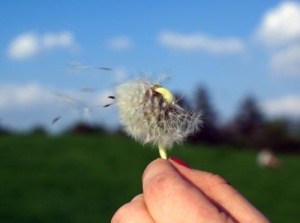What Can You Do About Those Pesky Allergies?!

In TCM (Traditional Chinese Medicine), allergies are due to both external and internal influences. What does this mean? Sneezing, post-nasal drip, and itchy eyes are a perfect storm created by the external influence of an allergen, like pollen, mixed with an internal imbalance of an organ, mainly the Lung or Spleen.
Lets start with the Lung. Our most sensitive organ, the Lung is our first line of defense, yet is easily weakened by environmental influences, like pollution and allergens. Once this organ is weak, the body is more susceptible to having a histamine response to things like grass or dust. The results are respiratory symptoms, nasal congestion, sneezing, and even skin conditions like hives.
You may notice that many people who have environmental allergies also have food sensitivities. In TCM, this is no coincidence. The Spleen is in charge of digestion, taking the nutrients from food and turning it into useable energy, which is then circulated to the rest of the body by the Lung. Therefore, if the Spleen is weak and sluggish, proper energy will not be synthesized and the Lung is the first organ to be affected. If these two organs remain deficient, the cycle will repeat itself and the same frustrating allergy symptoms will appear every year.
Acupuncture and Chinese Herbs are effective in both relieving the annoying symptoms (hooray!), and building up the sensitive Lung and Spleen to prevent them from happening again
Diet is also a huge part of the treatment of allergies (keep that Spleen strong!), and something you can manage on your own at home. Eating pro-inflammatory foods like dairy and sugars weaken both the digestive and immune systems, making the body more sensitive to histamine response. Instead, we can choose foods that will not only decrease inflammation, but also strengthen the Spleen.
Below are some things you can add to your diet to minimize your body’s reactivity and boost Lung and Spleen health:
- Increase your Omega 3 intake: wild caught fish, with lots of omega 3 fatty acids, help decrease inflammation, which can exacerbate asthma, nasal congestion, and itchy eyes.
- Increase your probiotics: healthy gut flora aids the immune system. Eat fermented foods like yogurt, kefir, kombucha, or kimchi.
- Drink green tea: swap out coffee and replace with green tea. It has natural antihistamines that can reduce allergy symptoms.
- Increase quercetin-rich foods: quercetin is a powerful antioxidant compound found in plan sources like capers, onions, dark leafy greens, tomatoes and dark berries. It’s considered to have strong anti-inflammatory effects on the entire body
- Increase vitamin C-rich foods: vitamin C has powerful antihistamines and buffs up the immune system. Increase your intake with foods like mangoes, oranges, dark leafy greens, broccoli, cauliflower, and bell peppers.
- Warm/Cooked Food: while there are a lot of veggies and fruits on the list above, it’s easier on your digestion if these things are cooked (steamed, baked, stir-fried, etc.). It is also important to avoid cold drinks like ice water or smoothies. Keep it room temperate and your Spleen will be happy
A few things to avoid: cold and raw foods, dairy, sugar, spicy foods, caffeine, gluten products, coffee, and non-organic foods containing pesticides
Contact us for a free 15-minute consultation to further discuss how acupuncture and Chinese Herbs can help control your allergies!




